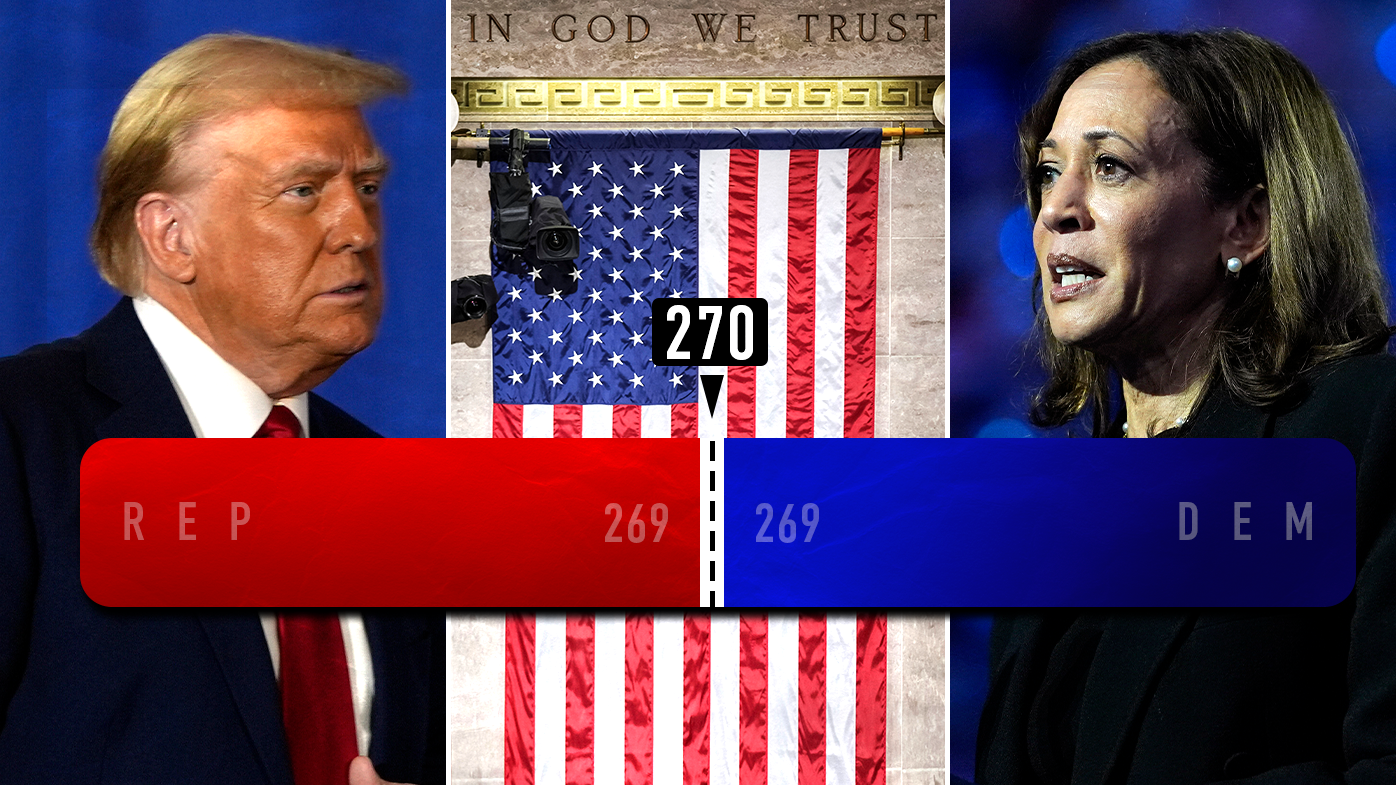
The US election is days away and Vice President Kamala Harris and Donald Trump are neck-and-neck in the polls, sparking the question: what happens if there is a tie in the presidential election?
This happens when no candidate secures the majority of 270 Electoral College votes needed to win the presidency.
If there is a tie in the Electoral College, the vote is turned over to the House of Representatives as per Article II Section 1 Clause 3 of the US Constitution.
EXPLAINED: How the US presidential vote works
House Representatives are required to immediately vote by ballot for the candidate of their choice and whoever wins the majority wins the presidency.
But each state only receives one vote, regardless of population, so states with multiple House Representatives must conduct an internal poll to decide on their vote.
The winner must secure at least 26 of the 50 delegation votes.
READ MORE: Why only 538 people out of 330 million get to decide the US election
According to the Congressional Research Service, this poll would also include newly elected members of Congress who would be sworn in on January 6, 2025.
The House would have to wait until these members are sworn in to cast its vote.
If a president still hadn’t been elected by inauguration day on January 20, the vice president-elect would be required to serve until a candidate has won.
There have only been two presidential election ties in US history.
In 1800, two candidates received exactly 73 electoral votes and the vote was sent to the House of Representatives, which deadlocked 36 times before Thomas Jefferson was chosen.
In 1824, frontrunner Andrew Jackson failed to secure the majority and the presidential vote was passed to the House again and John Quincy Adams was elected instead.
READ MORE: 50 states will vote in the US election. Only seven actually matter
What is the Electoral College?
The Electoral College is a collection of 538 electors who vote on behalf of their state.
Whichever candidate won the popular vote in each state receives all of that state’s electoral votes.
The only exceptions are Maine and Nebraska, where two votes go to the winner of the popular vote, and remaining votes are allocated to the candidate that is most popular in each of the states’ congressional districts.
DOWNLOAD THE 9NEWS APP: Stay across all the latest in breaking news, sport, politics and the weather via our news app and get notifications sent straight to your smartphone. Available on the Apple App Store and Google Play.
links to content on ABC
9News





